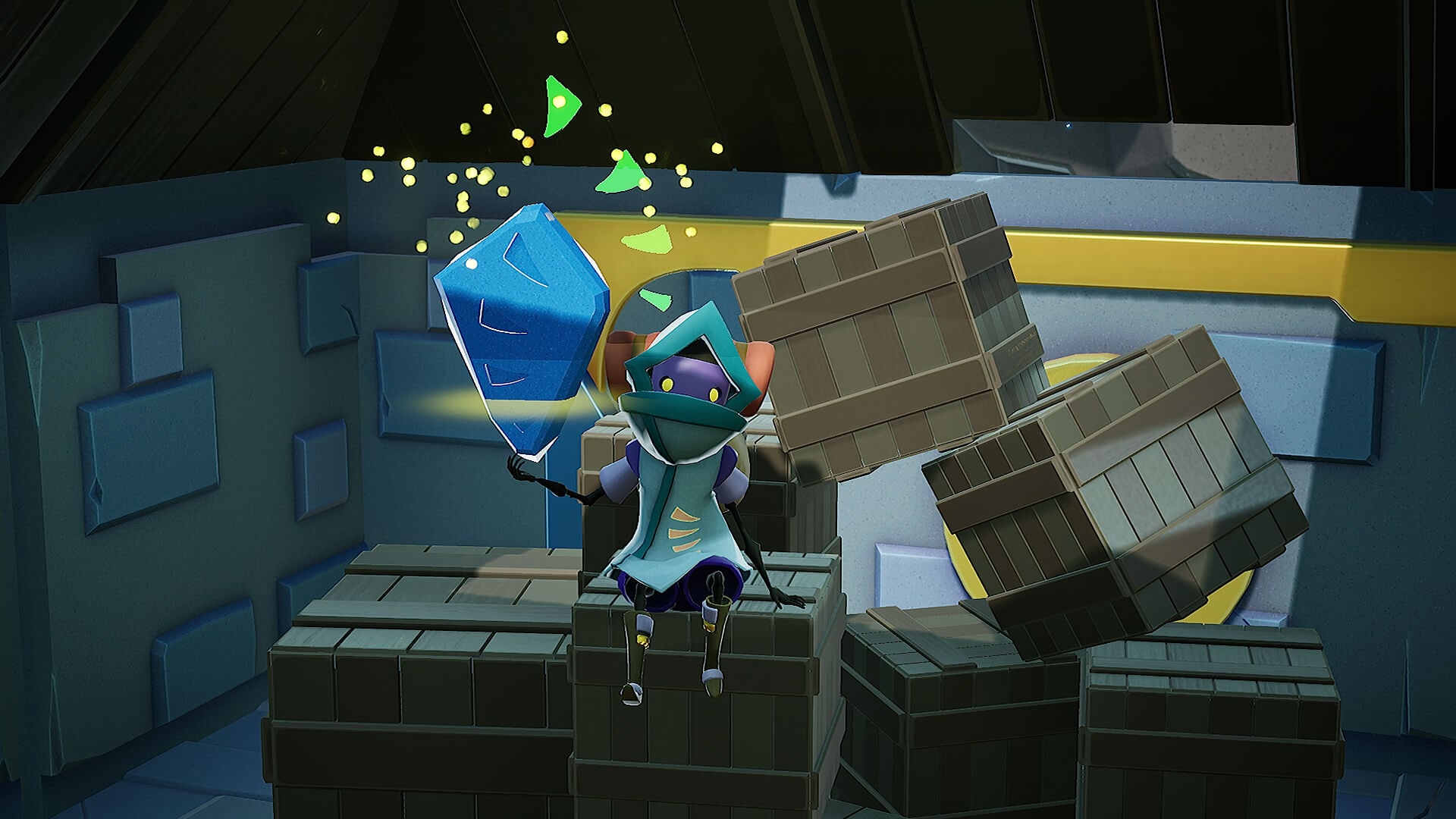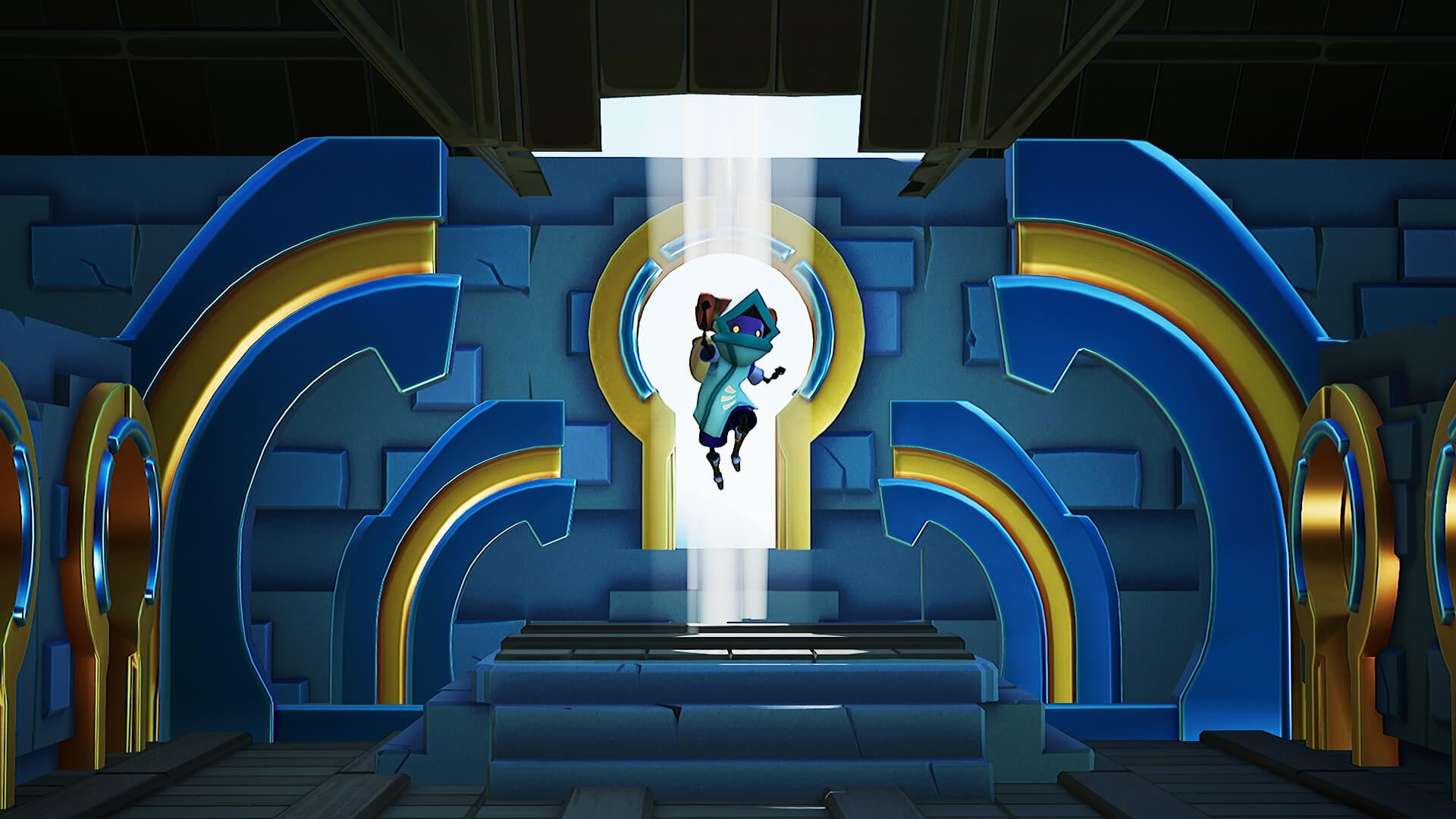
Learn how to code with Unreal Engine
Seven Siegel |
December 9, 2020Hour of Code is a worldwide initiative that aims to teach coding skills to people of all ages in a fun way. Anyone can organize an Hour of Code event or try out the tutorials on the Hour of Code website.
This Computer Science Week, Epic Games is supporting Hour of Code with a range of new lesson plans to teach computer programming to teens, in school classrooms, or in after-school clubs.
We previously unveiled five new Fortnite Creative lessons designed for the initiative. Today, we’re releasing five brand new Unreal Engine lessons—all designed to take just one hour.
Remember, Unreal Engine is free to download and use, and you can access these lesson plans for free also.
Take a look at the coding skills your students could learn below—this could be their first step on a journey to a career in computer programming!
These lesson plans help teach coding concepts to students through Unreal Engine. To complete these activities, you can download the new teacher and student assets from the Unreal Marketplace.
Each lesson has a lesson plan, a student guide, and a teacher guide. The activities and included project files are designed to be done in order from beginning to end or you can select any single activity to complete individually.
This Computer Science Week, Epic Games is supporting Hour of Code with a range of new lesson plans to teach computer programming to teens, in school classrooms, or in after-school clubs.
We previously unveiled five new Fortnite Creative lessons designed for the initiative. Today, we’re releasing five brand new Unreal Engine lessons—all designed to take just one hour.
Remember, Unreal Engine is free to download and use, and you can access these lesson plans for free also.
Take a look at the coding skills your students could learn below—this could be their first step on a journey to a career in computer programming!
Five new Unreal Engine lesson plans available
These lesson plans help teach coding concepts to students through Unreal Engine. To complete these activities, you can download the new teacher and student assets from the Unreal Marketplace.
Each lesson has a lesson plan, a student guide, and a teacher guide. The activities and included project files are designed to be done in order from beginning to end or you can select any single activity to complete individually.

Build Your First 3D Game: Learn Collision Detection in Unreal Engine
In this lesson, students will learn how to build a simple parkour course to get the player through a hallway, and across a treacherous void. They will learn about collision detection and how important it is in computer programming, especially in game development.They will also have a chance to get familiar with navigating the Unreal Engine user interface (UI), more specifically, the Viewport. They will explore the interface in order to modify objects to include collision detection and place objects throughout the level to develop the game world.

Moving Platforms and Checkpoints: Loops and Boolean Variables in Unreal Engine
Many games include moving platforms to add a challenging and exciting game mechanic. In this lesson, students will learn how to build a game level with floating islands, using moving platforms. To make it to safety, the player must time their jumps to traverse the sky, moving from island to island.Students will learn computer programming concepts including loops and Boolean variables, and get an understanding of how important they are, particularly in game development.

Reach New Heights with Power-ups and Collectibles: Working with Public Variables in Unreal Engine
In games, power-ups allow the player to perform actions they might not otherwise be able to perform. For example, you could add a speed boost that helps a player gain speed to reach a goal faster, or add a boost that makes your player invincible for a period of time. Oftentimes, power-ups are a function of changing a variable to provide this short-term effect.In this lesson, students will add a power-up that enables the player to reach platforms that are much higher than they can currently reach. We’ll explore Blueprints, the visual-scripting system for Unreal Engine, and make changes to the variables responsible for the desired outcome. Then students will add coin pickups to entice the player to jump to these out-of-the-way places.

The Key to Unlocking the Final Area: Working with Conditional Statements in Unreal Engine
You’ve jumped through several levels and risked everything jumping high in the sky across treacherous, moving islands. You finally made it to the castle where you believe you will find the final treasure! You would love to just walk in, wouldn’t you? As you might expect, the door is locked and you don’t have the key! Find the key and unlock the door so you can reach the final goal!In this lesson, students will learn about and work with conditional statements. The condition is that a key is needed to open the door. Once inside, the player can complete the game.

Polish and Publish Your Game: Working with Widgets and the Heads-up Display in Unreal Engine
In this activity, students will learn how to use elements of the user interface or heads-up display (HUD) effectively to provide a positive-user experience in a game.They’ll explore aspects such as whether information for the player is displayed in a way that lets them know what’s going on; whether score and/or health are easy to locate; whether a player can visually see what items they have in their inventory, and more.
In addition, they will get to modify their game to make it more their own. Finally, they will package (publish) their game so they can share it with the world.
Want to take part in Hour of Code?
Download all of these lesson plans for free and start using them in your classroom today. If you’re interested in learning more about how you can participate, reach out to us!